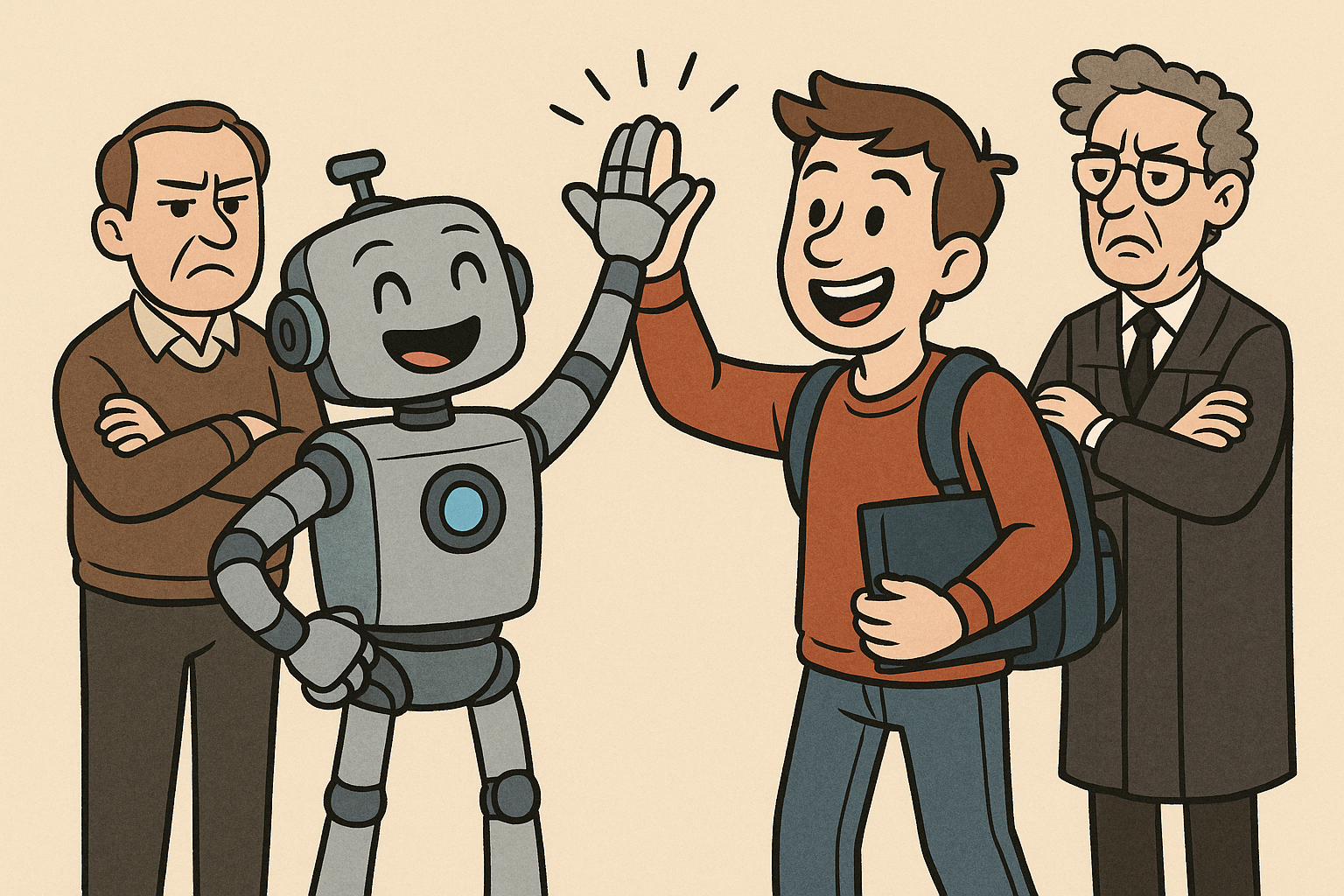My LLM Ate My Homework
A college education is meant to shape how we think, not just what we know. At least, that’s what we’re told. The act of writing essays and solving math problems aren’t meant to be busywork. They’re exercises in critical thinking, the mental equivalent of weightlifting.
This is why AI tools present such a problem in higher education. A NYMag feature showed that many students now treat AI not as a learning aid but as a “get out of jail free” card, allowing them to cheat on just about any assignment. Short term, this seems efficient, maybe. But long term, it’s like hiring someone to do your pushups and expecting to get stronger. How will tomorrow’s college grads think critically if they didn’t master it while at university?
But there’s a greater issue here that predates AI cheating by several decades: college isn’t about learning anymore, it’s about high stakes. Ethan Mollick noted that the modern university experience has become transactional. Students are acutely aware that good grades can unlock internships, jobs, scholarships, etc. The system pressures students to produce results, not necessarily to understand the material.
If ChatGPT can generate a passable term paper in 10 minutes, and that paper gets the same grade as one that took 20 hours, any rational student weighs the costs and benefits and decides they’re better off taking the risk with ChatGPT doing the heavy lifting. When incentives reward output over process, the result isn’t surprising.
My take is that we can’t ban AI tools in education. That ship has sailed. Rather than resist this shift, educators, students, and parents should adapt. That adaptation will require changes in how educators assess learning. It may involve more oral exams, in-class writing assignments, or coursework that explicitly asks students to critique or build upon AI generated work. It also means educators must teach students how to use AI responsibly: as a thought partner rather than as a ghostwriter.
For parents, the challenge is to reinforce the value of learning over simply achieving. I have tried to practice this myself with my own kids. I know they’re going to use AI tools to help them finish their schoolwork. I just ask that they use it as a learning tool and not merely as a crutch to finish the work faster. Time will tell if this was good advice.
Sources:
www.oneusefulthing.org/p/post-ap…

